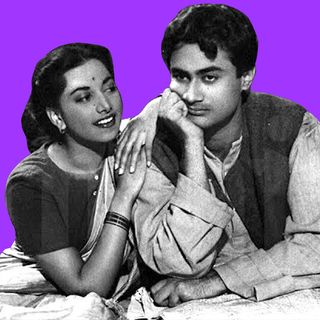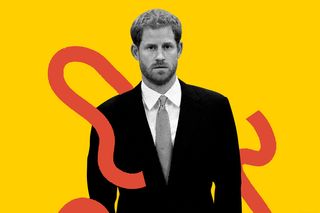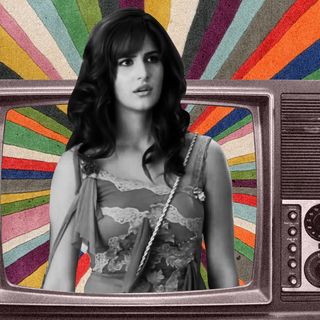
The Royals Were Always a Soap Opera. ‘Spare’ Only Brings It to Light
Bizarre revelations from Prince Harry’s upcoming memoir show the mechanisms of the royals’ celebrity.

The headlines about the British royal family this week vary from sensational to bizarre. The Guardian’s coverage of a leak from Prince Harry’s upcoming memoir Spare carried revelations about the former royal’s relationship with his estranged family, his late mother, and his feelings about being the “spare” son in terms of inheritance of titles and power. There’s always been drama in the royal family — but what makes this one different is a key ingredient: the drama turned from high-brow to low-brow.
In just the last few days, news about the memoir revealed frostbitten penises, a physical altercation between brothers, the resurrection of a Nazi uniform scandal, a woman who relayed a message from beyond the grave, and jealousy over a partner’s intimate scenes in a TV show. This is the stuff of campy soap operas — but it’s not exactly new. Previously, the tragedy surrounding princess Diana’s death, and prestige TV like The Crown had imbued the family with an air of seriousness and pathos. But the royal family has always relied on scandal to be the subject of mystery and intrigue. Now, the scandals are more intimate, personal — and banal.
In a way, the royals were the first reality TV family in history. Their image as an institution has long shielded their credibility as an institution, even if individual members were implicated in scandals. Whether it be their extra-marital affairs, family rivalries, or public appearances, the royal family’s aura has been defined by carefully cultivated distance, lending it an air of nobility.
Queen Elizabeth II’s coronation was broadcast on TV in an attempt to win back relevance in a fast-developing world; later, a BBC documentary called Royal Family offered a glimpse into their inner lives all the way back in 1969. Subsequent events in their history have all been heavily documented affairs — all in service of humanizing a family whose aura seemed larger than life. Prince Harry described it as an unspoken contract between the family and the press — and it shows how their celebrity has always depended on making themselves consumable by the public.
The scandals that have followed suit weren’t any less campy — but the element of distance allowed for bigger conversations about power, influence, history, and duty. The love triangle between King Charles, Diana, and Queen Consort Camilla to the public eye reinforced the monarchy as an institution, imbued with an air of sacrifice and tragedy. Prince Andrew’s fall from grace for his association with child sex trafficker Jeffrey Epstein spoke to power and immunity. Even Kate Middleton’s early outfit choices — described by some as tacky for the large and conspicuous sapphire ring — spoke to the family’s lineage, history, and its position as a colonial institution.
Prince Harry’s and Meghan Markle’s exit from the family started out this way too. In their infamous interview with Oprah, they spoke to a culture of subtle racism within the institution, even alleging that a member of the family enquired after their baby’s skin-tone. “The monarchy has been able to absorb and withstand massive scandals in the past but I don’t know if it has the fortitude to absorb this one,” culture critic Anne Helen Petersen tweeted at the time, speaking to allegations of racism within the royal family. These were big, institutional critiques that surrounded the family, shrouding them in further mystique.
Related on The Swaddle:
Royals, then, could remain high-brow no matter what — as long as the stories they told about themselves always remained sanitized, and maintain a safe distance from the public. In this way, then, the ability to use them as a vehicle to speak about societal baggage elevated them above: they’ve always carried the veneer of reality TV, but as the high-brow version of the Kardashians. “… Careful cultivation of their public image has enabled both the Kardashians and the British royals to maintain their economic and cultural dominance,” said Kim Hew-Low in The Baffler.
But what makes this phase a turning point is that the gravitas and heft that history afforded them is no longer assured. With Spare, what used to be a sharp line of separation between the Kardashians and the Windsors as low-brow and high-brow isn’t quite so defined anymore. The revelations of intimate emotions, fights, and baggage deconstruct the cultural legitimacy of the royal family — turning it from an institution to, in the end, a family.
Prince Harry’s memoir, however, zooms into the minutiae: how he lost his virginity (behind a pub, when he “mounted” his partner), the state of his “todger” at his brother’s wedding, his insecurity about his stepmother, and the exact nature of his injury at the hands of his brother, all meticulously described by the Prince himself. In the name of reclaiming the narrative, then, the memoir loses control of it — revealing the royal family to have been a grand soap opera all along, one we were just too awed to recognize as such.
Standing at the border between high-brow and low-brow — and therefore, royalty and reality — is messiness and TMI. The entanglements of family, scandal, and high-octane emotion once squarely confined in the realm of distant, hard to discern narratives that everyone asked for more of have now devolved into information-sharing that nobody asked for.
It’s a symptom of the times: the royal family is, as Hew-Low put it, in its flop era. “Current disillusionment with the first families of the United States and UK points to something more than an audience unconvinced by their relatability, however. It also reflects a growing skepticism of the idealized nuclear family altogether.” In a way, then, the apparent unravelling of the royal family in front of the whole world may actually be what’s keeping it relevant when the old formula no longer holds.
The Windsors have truly been humanized finally: Royals! They’re just like us.
Rohitha Naraharisetty is a Senior Associate Editor at The Swaddle. She writes about the intersection of gender, caste, social movements, and pop culture. She can be found on Instagram at @rohitha_97 or on Twitter at @romimacaronii.
Related


Can We Move On: From the Woman Who Uproots Her Social Life, Career to Be With a Man
